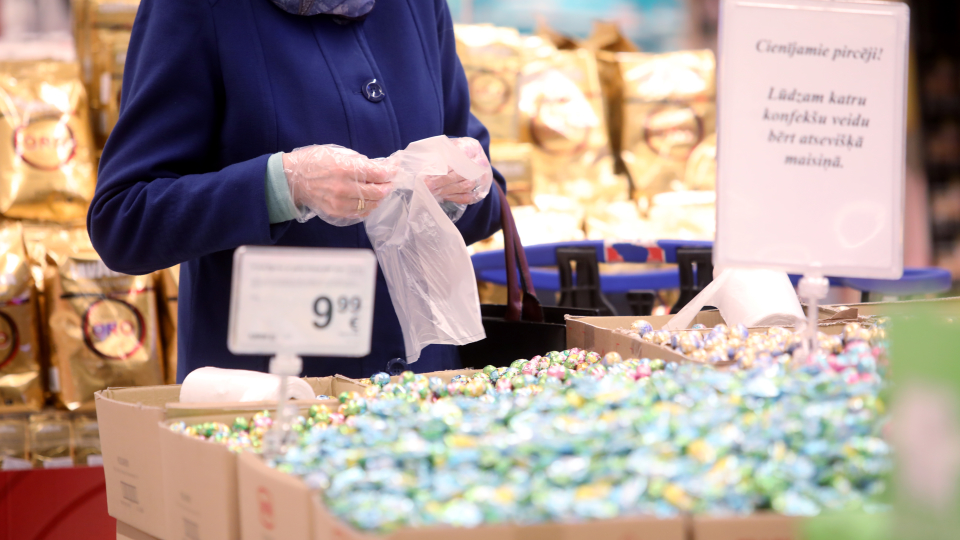Nearly 80% of the population currently stick to food purchasing and eating habits developed in the last two years and only 4% plan to return to their initial behavior, according to a study conducted by the retail network Maxima Latvija. Elena Popjonoka, director of the company's analytics department, said that almost every third respondent indicated that they had started shopping less frequently in the last year.
“Despite the fact that a third says visiting stores is less frequent, still our culture shows that people go shopping very often. Nine out of ten people visit the shop at least once a week. Most likely before the pandemic, it was even more frequent. That means there are a number of people who go to the shop every day,” Popjonoka said.
People have also indicated that they believe it is possible to save money when going to the shop less often. Most commonly, the claim was made by people under the age of 34.
Elena Popjonoka explained this by the fact that it is in these age groups there are a lot of people buying goods impulsively: “We see this, by asking other questions where people say that in the last half-year they buy less snacks and sweets. If there are any additional items placed in a basket, then this is the time when people are prepared to give them up.”
The Maxima study also concludes that the pandemic's habit of building food reserves and shopping in an e-shop is to stay. It was also confirmed by Juris Šleiers, head of public relations for the retail network “Rimi Latvija”, saying that the brightest feature of pandemic time is a rapid boom in e-commerce.
“If e-commerce experienced explosion-type growth during the pandemic, then now growth is normal. On the other hand, the current situation shows trends for different product groups that people are likely to purchase due to historical memory. There was the famous story of salt some time ago. Everything has now normalized in some ways, both procurement and product balances. Although there are still major logistical problems, producers are trying to refocus from the markets that are currently closed,” Šleiers said.
The second most demanded commodity since the war launched by Russia in Ukraine is oil. In the “Rimi” network, demand for oils has increased even four times.
“Oil availability is also affected by the fact that the US has started to use rapeseed oil in biodiesel, which means high demand for this resource on international markets and, accordingly, price increases. Both the breakdowns in the logistics chain and the fact that Ukraine, as one of the oil-exporting countries, is partially closed. All of this has a significant impact on producers and, consequently, on the price of the final product. Everything is connected in a way,” Šleiers said.
Dainis Gašpuitis, an economist at SEB Bank, said that the pace of savings has been slowing in recent months, which means that more people are spending money.
The economist predicted that as the winter approaches, people will spend less on entertainment and various recreational events because they will have to think about how to pay the heating bills. For food purchasing, too, shopping habits are likely to change, according to the economist.
“It could initially be expressed in the way that people would eat less outside their home and buy more food and prepare themselves. Such a trend is likely to intensify. The same logic will also be reflected in food selection. In other words, people will consume less processed products with lower prices," Gašpuitis said.





























